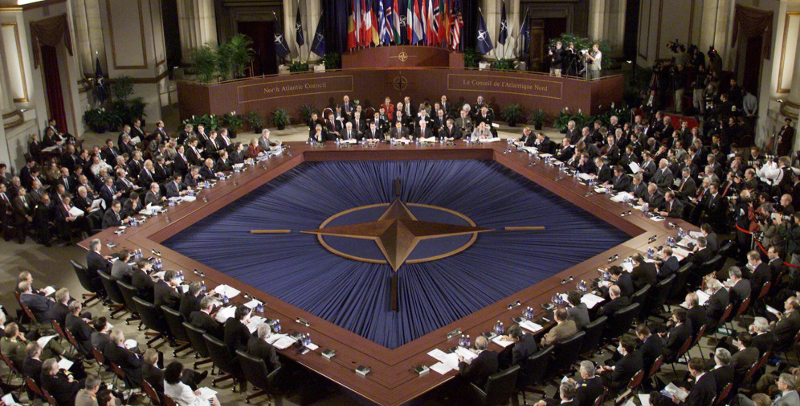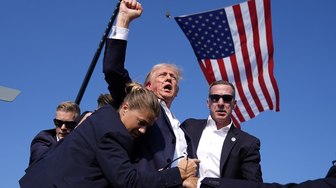It's not as crazy as it sounds.
NATO is your typical election issue, but 2016 is not your typical election.
In a newly published interview for the New York Times, Donald Trump suggests his administration might not support defend the country’s NATO allies against a Russian attack unless they “fulfilled their obligations to us.” The statement not only directly contradicts one of NATO’s core principles, that an attack on one NATO member be seen as an attack on all, it also runs against a decades-old, bipartisan consensus that the commitment remain ironclad – and unconditional.
What else is interesting is that Trump’s skepticism is already in line with the thinking of his strongest supporters within the Republican primary electorate – and that thinking sets them in stark opposition to those who backed Trump’s opponents.
For example, among pro-Trump Republicans (note: this also includes some independents who say they backed Trump in the primary) 61% have an unfavorable opinion of NATO while only 26% have a favorable view, for a net rating of -35. Looking at Republicans primary voters who supported someone else, the figures are reversed: 63% have a favorable opinion of NATO and 28% have a negative opinion, for a net rating of +35.
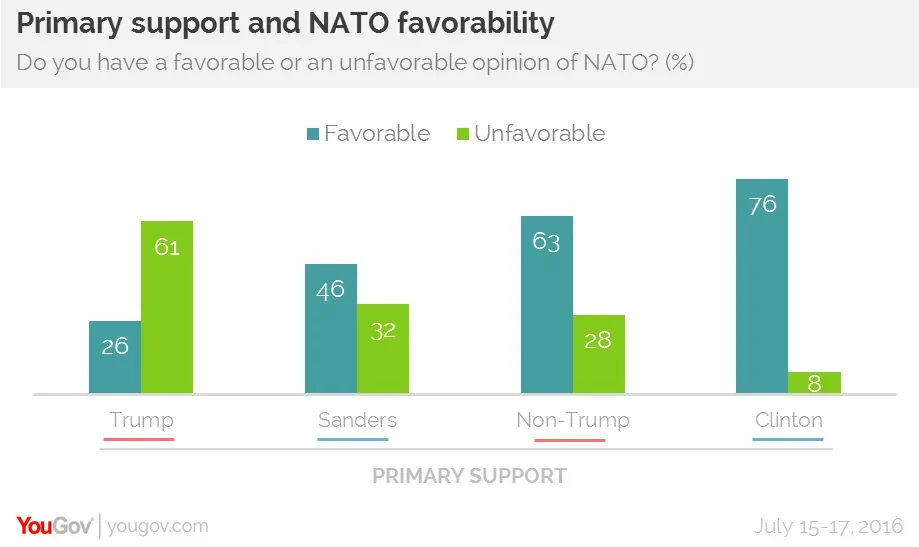
Interestingly, the issue even splits Democrats and independents who supported Bernie Sanders and those who supported Hillary Clinton, albeit to a lesser degree.
The poll was conducted over the weekend, before Trump’s latest remarks. However, he has expressed ambivalence about the 67-year old military alliance before. During the primary, he said NATO “may be obsolete” and that if countries “can’t pay their bills … they’ve got to go”.
Asked specifically whether the US should withdraw from NATO, non-Trump Republicans support remaining a member by 72% to 9%, while the split is much narrower among Trump Republicans, 27% for withdrawal and only 41% against. Once again, Sanders supporters have more in common with Trump Republicans than Clinton Democrats.
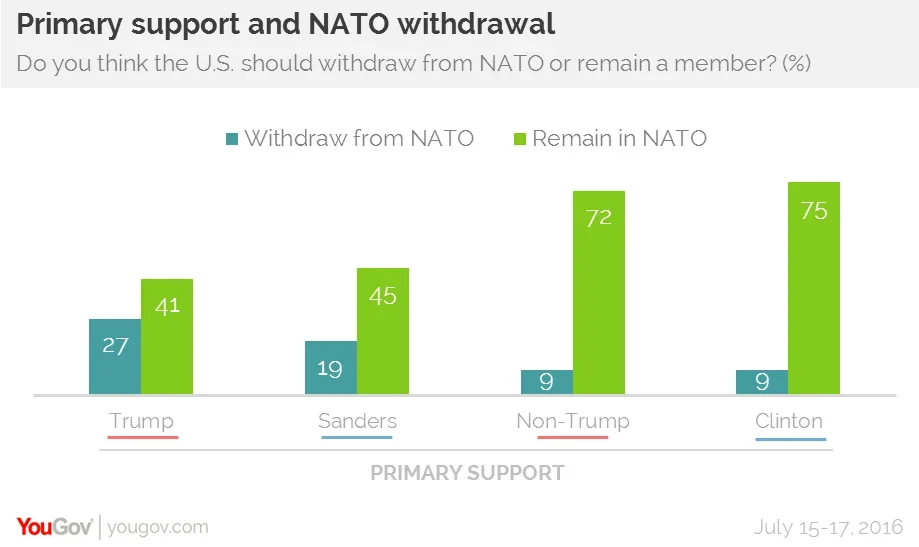
The divisions appear to be rooted in differences over America’s role in the world, especially when it comes to military interventions.
Asked more generally whether “the United States has a responsibility to give military assistance in trouble spots around the world when it is asked to by its allies”, Clinton Democrats agree there is a responsibility by 54% to 29%, similar to non-Trump Republicans at 53% to 41%.
Among Sanders supporters opinion is completely flipped: 52% deny such a responsibility, while 30% accept it. Trump supporters are more split, 46% say no to military assistance for allies, 44% say yes, but they again express less interest in military alliances than other Republican primary voters.
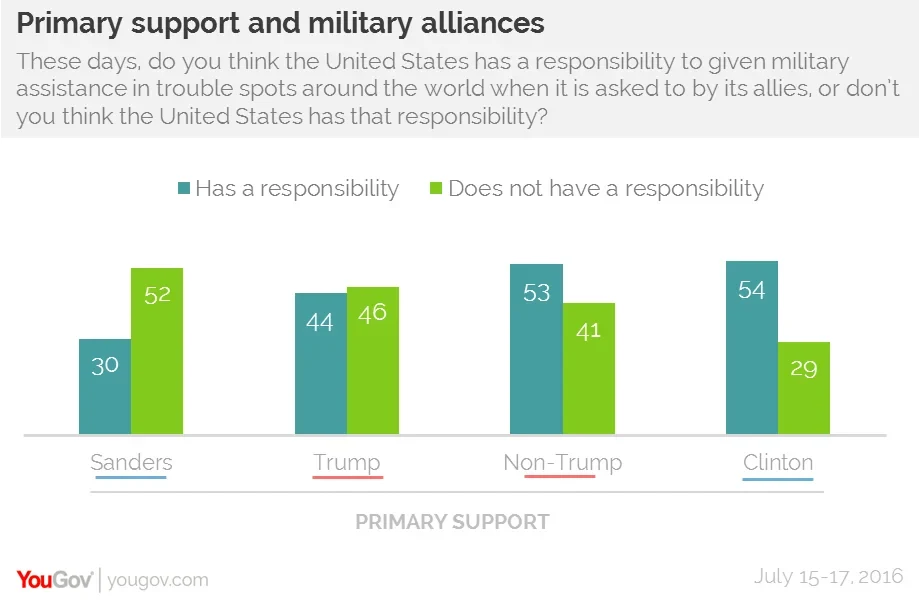
In certain ways the splits are unsurprising. For all their very real differences, Trump and Sanders took their opponents to task for past support of the Iraq war, and sought to define themselves as the choice for voters weary of US entanglements abroad. Indeed, for these reasons and others, members of the Republican foreign policy establishment have been among his loudest critics within the party.
These distinctions make NATO and America’s approach to its allies around the world an potential wedge issue – that is, an issue that splits a party’s voters internally, sometimes leading to unexpected rearrangements of traditional voting coalitions. And indeed, in general election vote preference all Clinton supporters are 51% to 32% in favor of assisting allies, while Trump supporters are almost evenly split, 46% to 44%.
Importantly, foreign policy in general is usually a low priority for ordinary voters, meaning other issues like healthcare or immigration could take precedence. But this data shows it could be an issue to watch, particularly if crises continue to simmer in countries like Turkey, a NATO member whose president recently defeated an attempted coup.
See the rest of this week's YouGov/Economist Poll
YouGov/Economist Poll archives
